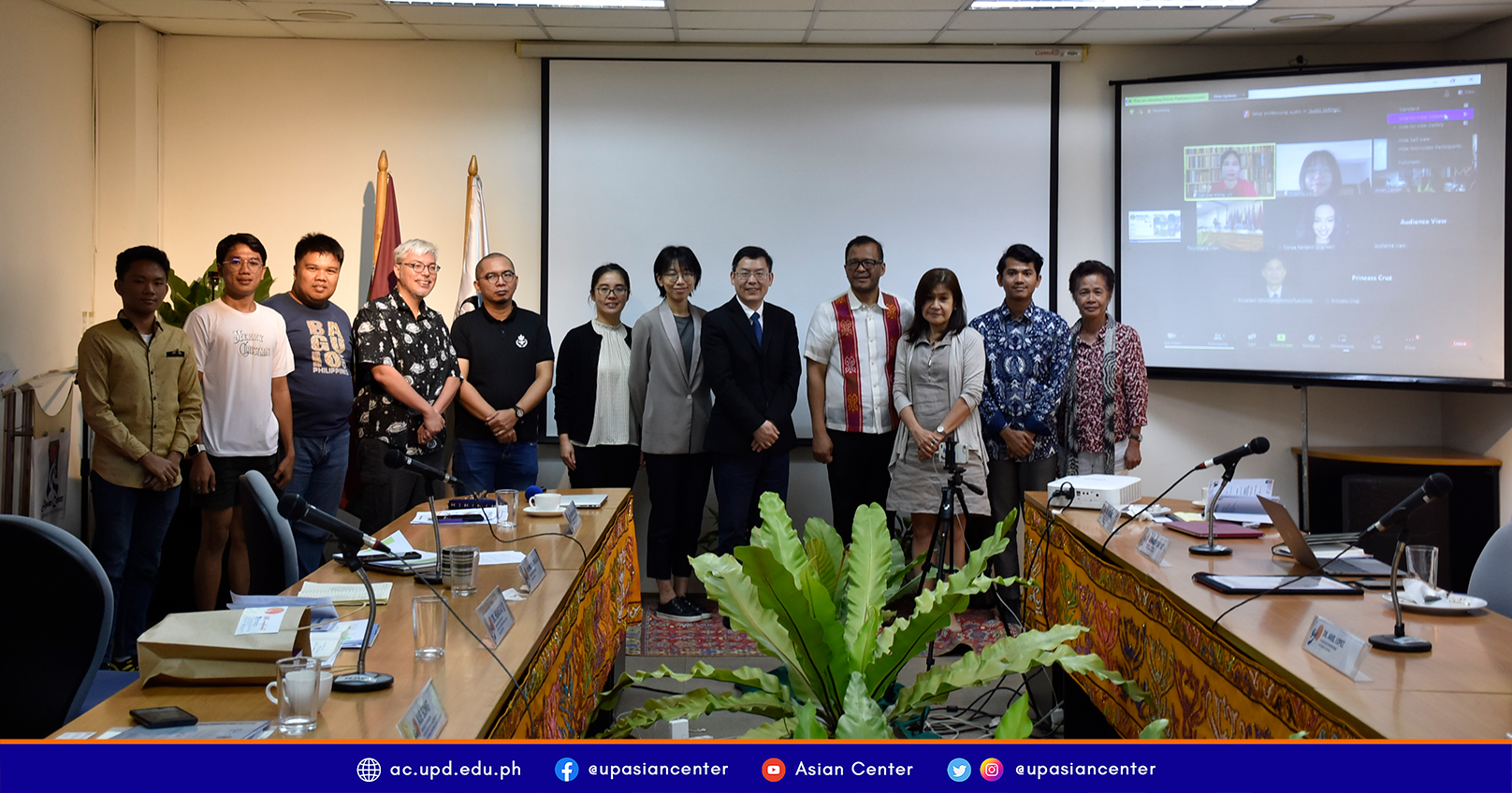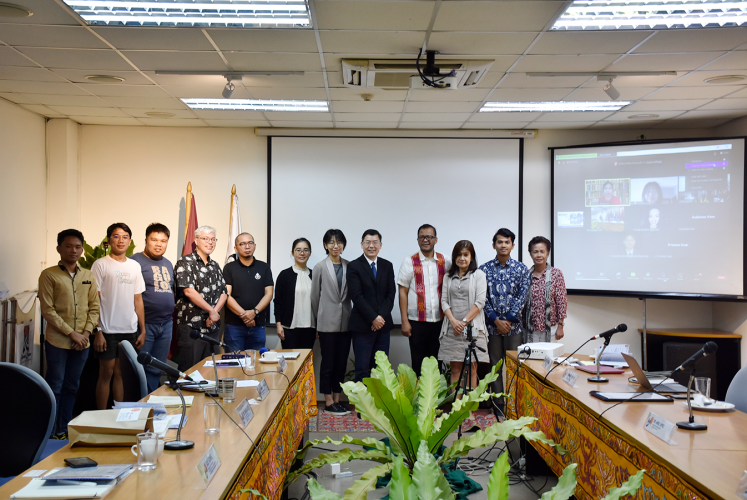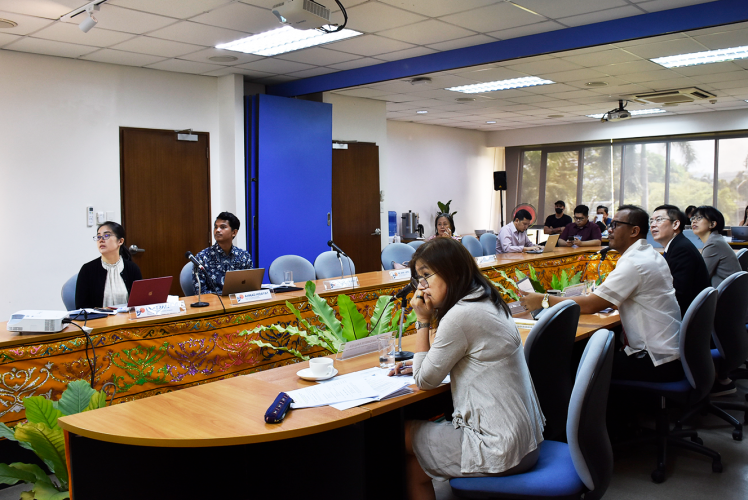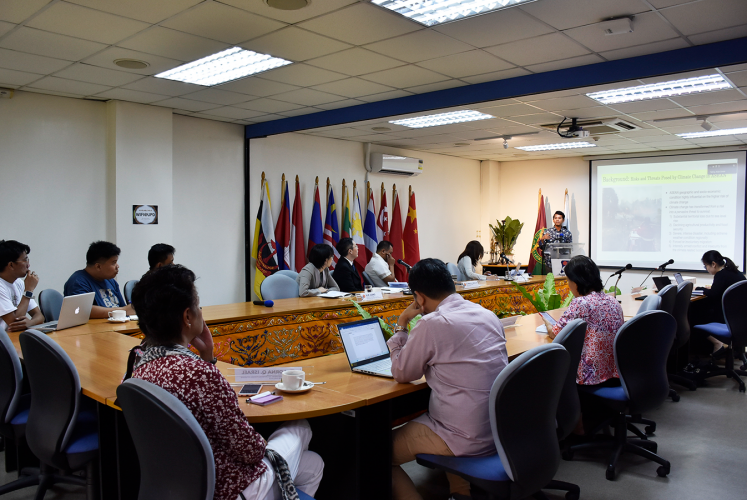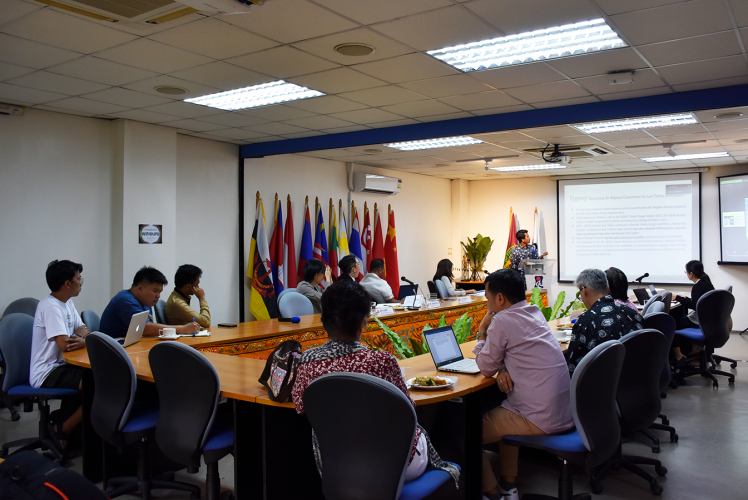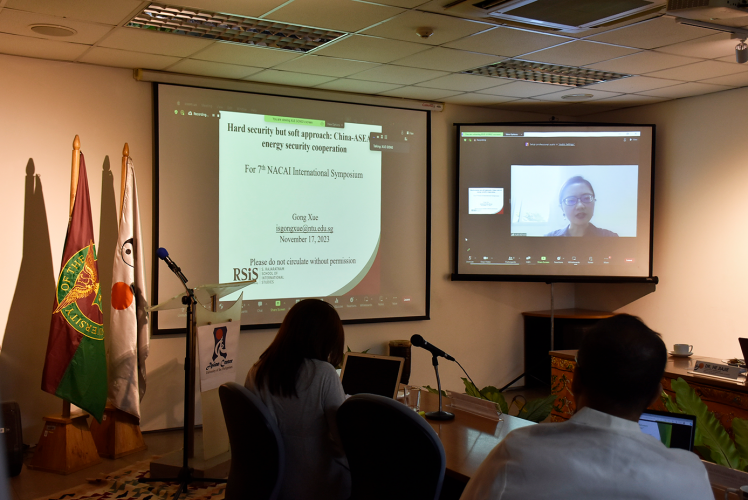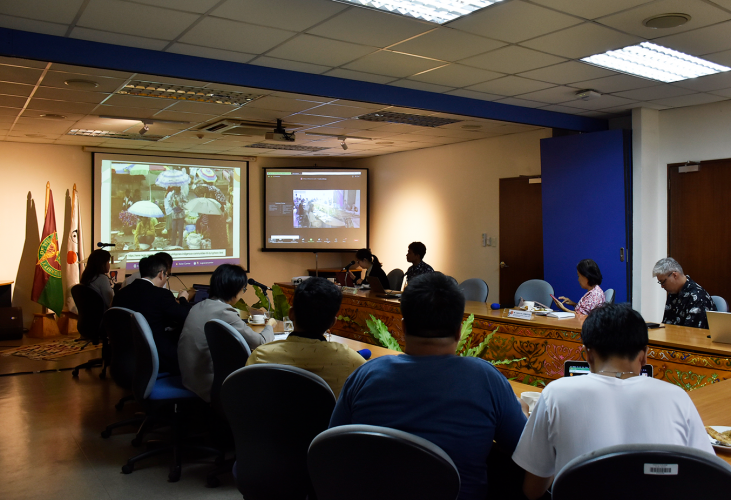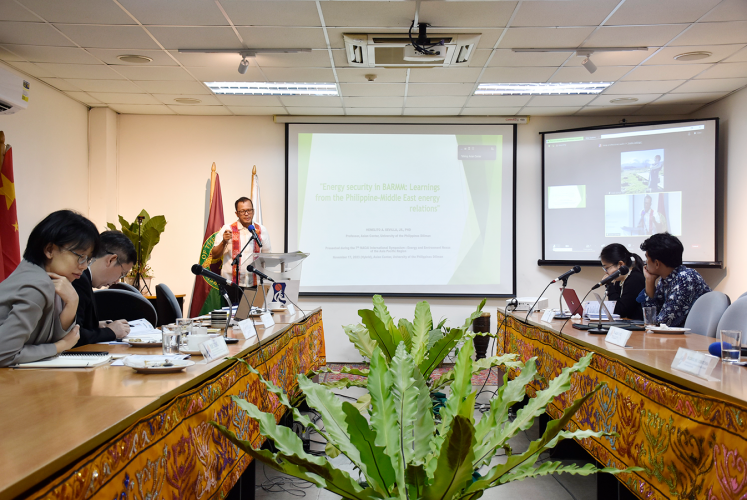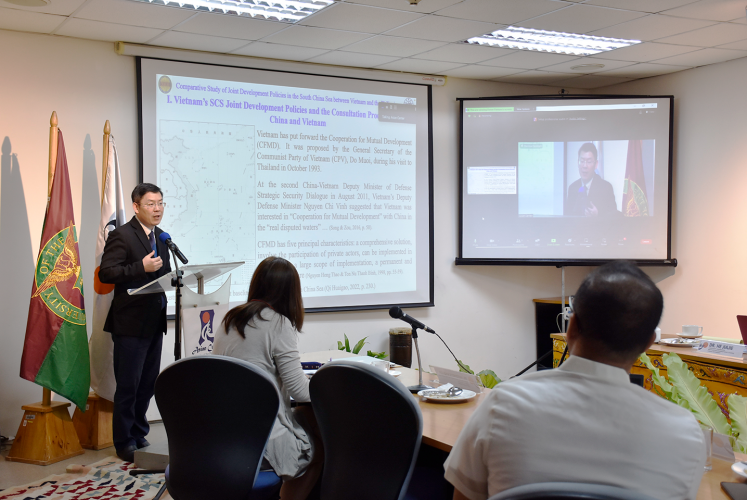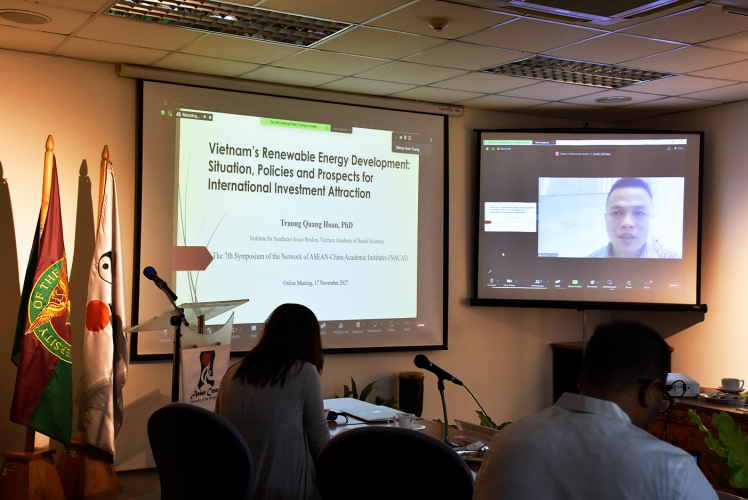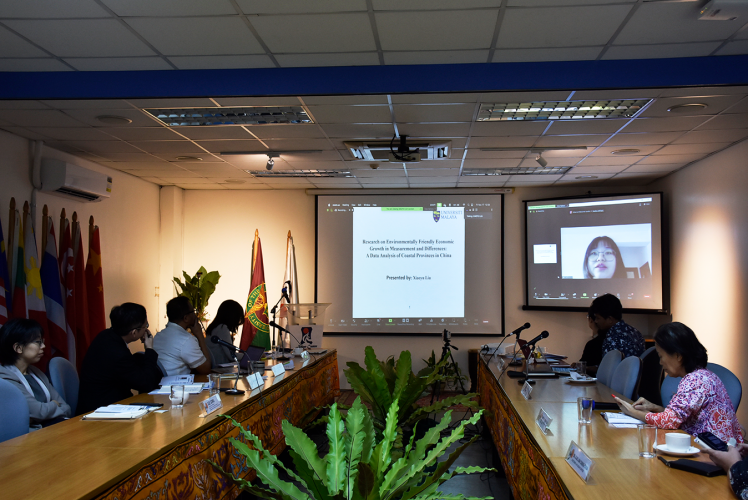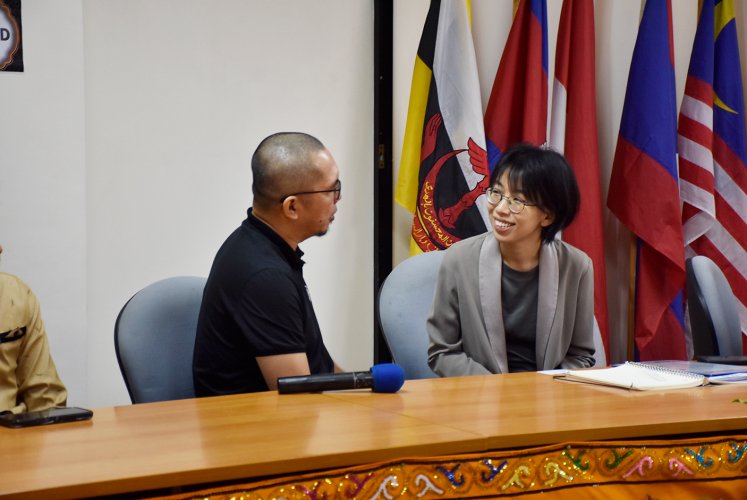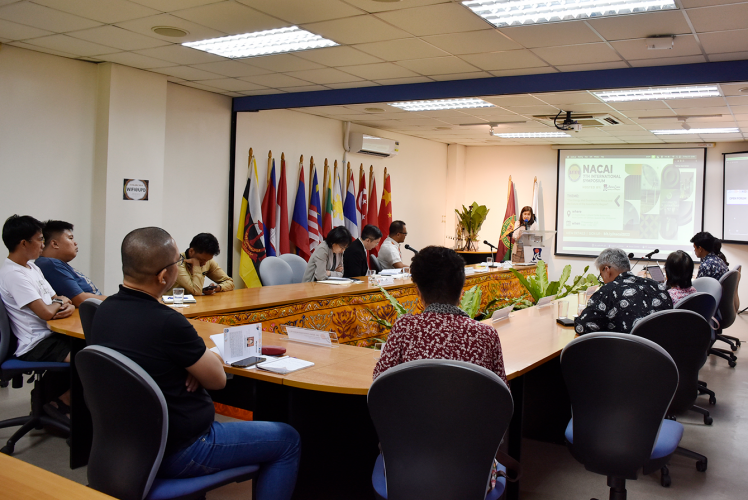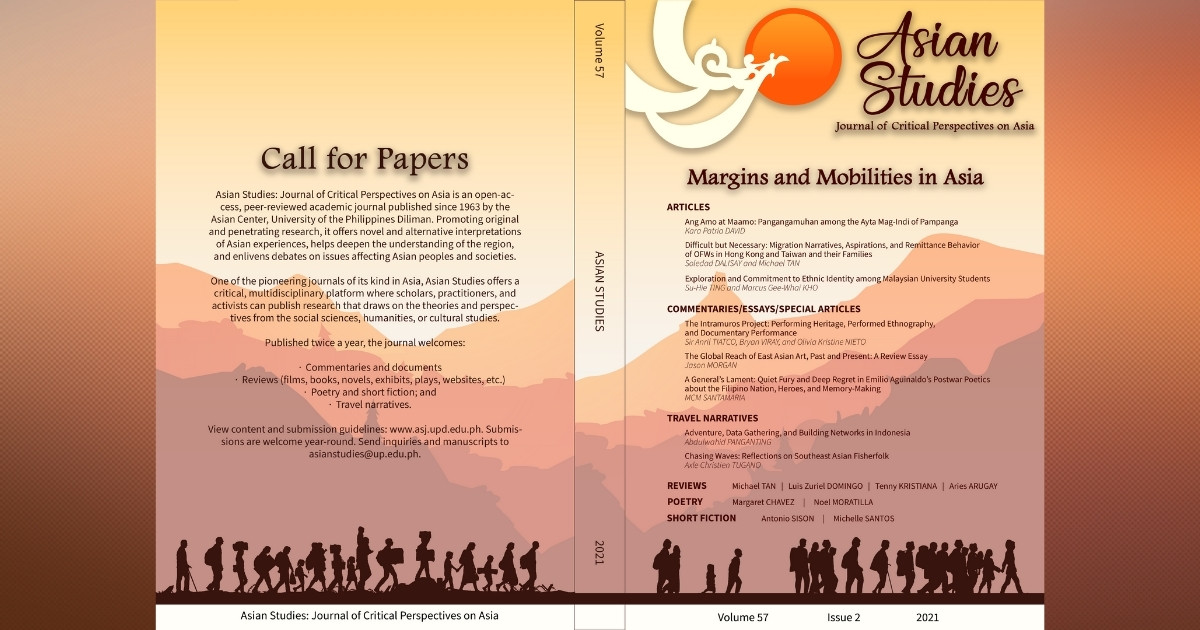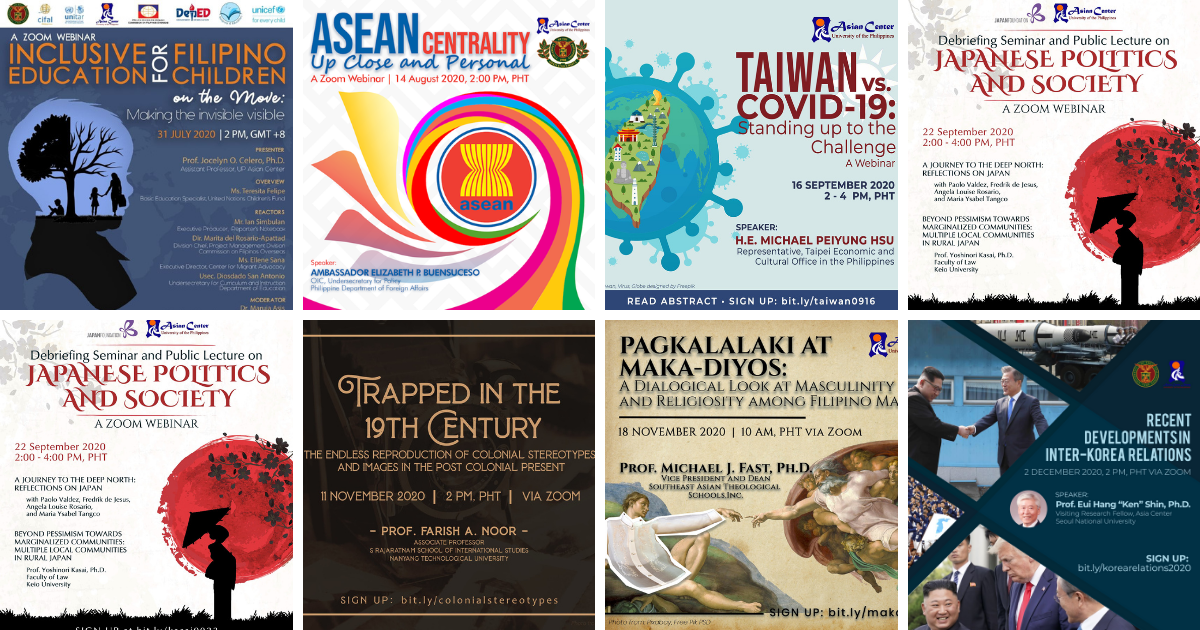The UP Asian Center successfully hosted the 7th NACAI International Symposium with the theme “Energy and Environment Nexus and the Future of the Asia-Pacific Region” last 17 November 2023 at the Seminar Room, GT-Toyota Asian Center Auditorium. The event was conducted in a hybrid format.
The symposium brought together scholars and experts from NACAI member countries to study the interconnectedness of energy, environment, and economic issues in the Asia-Pacific region. The presentations were divided into three themes.
On climate change, Dr. San San Khine from the University of Yangon in Myanmar began the discussion by analyzing the activities and coherent efforts of the government of Myanmar toward tackling the challenges brought by climate change. Mr. Ahmad Hidayat, associate researcher at the Universitas Indonesia, expounded on the theme. He examined each ASEAN states’ commitment and efforts to reconcile their National Determined Contributions (NDCs) toward achieving the regional low-carbon development agenda. The final speaker for the the panel was UP Asian Center Associate Professor Dr. Michelle R. Palumbarit. Her presentation tackled the contribution of indigenous peoples’ traditional knowledge in relation to ASEAN’s fight against climate change.
Under energy security cooperation and geopolitics, Dr. Gong Xue from Nanyang Technological explored the softer angle of China’s energy cooperation with ASEAN countries. Meanwhile, Dr. Henelito A. Sevilla, Jr., Dean and Professor of the UP Asian Center, scrutinized the Philippines experiences in its energy relations with the Middle East and connected it with the rich energy sources in the Bangsamoro Autonomous Region of Muslim Mindanao (BARMM).
The final theme discussed alternative policies, approaches, and Development beginning with Dr. Huaigao Qi of Fudan University. He closely examined the joint development policies of the Philippines and Vietnam. Following this, Dr. Troung Quang Hoan from Vietnam Academy of Social Sciences assessed the current situation of renewable energy development in Vietnam. Finally, Ms. Xiaoyu Liu, a Ph.D. student at the University of Malaya, measured and analyzed 11 coastal provinces in China for environmentally friendly economic growth.
UP Asian Center Dean and professor, Dr. Henelito A. Sevilla, Jr. delivered the opening remarks and emphasized the importance of government intervention and partnership between civil society, businesses, and scholars in implementing functional policies in environment protection and climate change mitigation. Dr. Huaigao Qi, Professor and Vice Dean of the Institute of International Studies of Fudan University, also delivered a short message and wished for a successful symposium. Likewise, Associate Professor Dr. Xue Song from Fudan University provided a brief report on NACAI’s past and future activities.
The event ended with a short synthesis from UP Asian Center Assistant to the Dean for Public Affairs, Dr. Antoinette R. Raquiza, followed by the closing remarks from Dean Henelito A. Sevilla, Jr. The symposium was attended by representative of member universities of NACAI and select students from the UP Asian Center.
NETWORK OF ASEAN-CHINA ACADEMIC INSTITUTES (NACAI)
Established in 2017, the Network of ASEAN-China Academic Institutes (NACAI) is a platform of academic exchange and cooperation co-established by nine influential academic institutes in ASEAN countries and Fudan University. NACAI aims to encourage joint research on the issues related to ASEAN-China relations through providing intellectual support and collaborative innovation among its participants as a platform of academic exchange and cooperation. Read more about the symposium.
MORE PHOTOS FROM THE EVENT
For inquiries, please contact us at This email address is being protected from spambots. You need JavaScript enabled to view it. or call 891-8500 loc. 3586.
The Asian Center, University of the Philippines Diliman offers M.A. degrees in Asian Studies with four fields of specialization: Northeast Asia, Southeast Asia, South Asia, and West Asia. The UP Asian Center also has an M.A. program in Philippine Studies that allows students to major in Philippine society and culture, Philippine foreign relations, or Philippine development studies. It also offers a Ph.D. program in Philippine Studies in conjunction with the College of Arts and Letters and the College of Social Sciences and Philosophy. For an overview of these graduate programs, click here. As an area studies institution, the Asian Center also publishes Asian Studies: Journal of Critical Perspectives on Asia, the latest issue of which can be downloaded at the journal's website.


